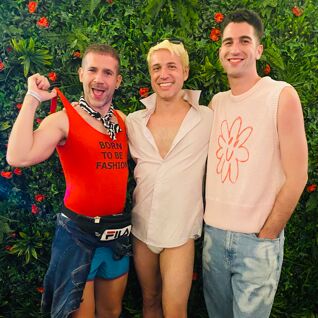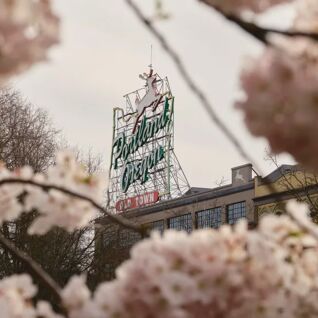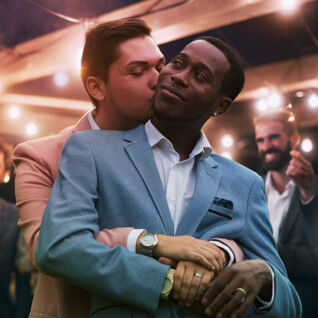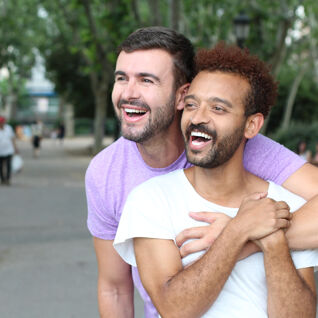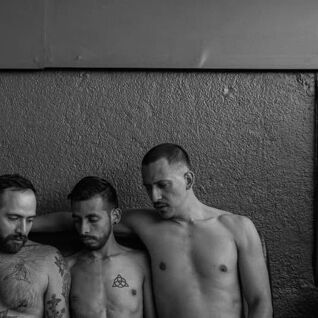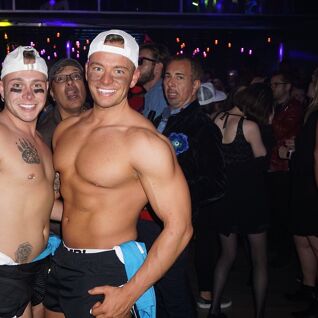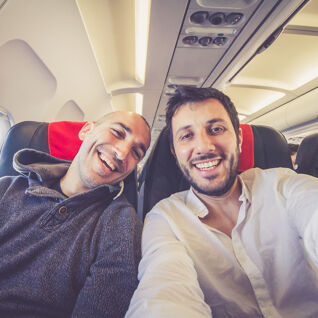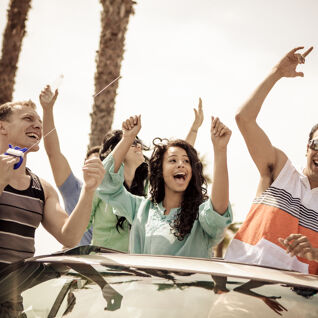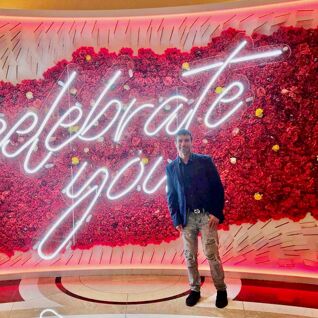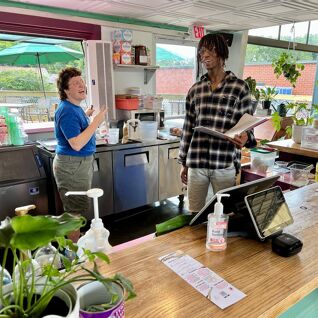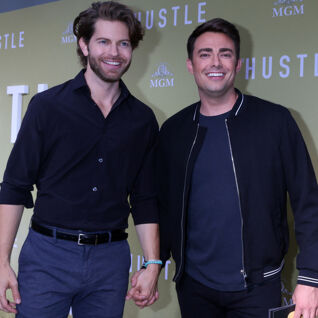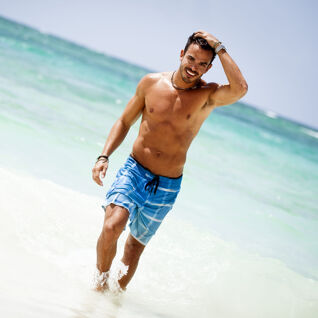
I’m fed up with the killing and treatment — the racism, the police brutality, the scapegoating — of black Americans.
It’s upsetting that racism and discrimination are facts of life for most of them and for many Americans. As a Latino drag queen and activist, I will never fully understand what it means to be black. And, there are so many people who still think that racism is no longer a problem in this country. (And F anyone that thinks that way.)
Alas, there are no more important voices that need to be heard than those that make up our black, brown, and any-other-color-than-white communities right now. So, I reached out to some dear friends — frankly, people who I consider family — to hear their hopes, dreams, and also to be an ear to any of their fears.
My black queer friends — Carmen, a sublime artist and creative; the sassy-mouthed queen Traci; and Drew, a handsome, dignified bartender — all echoed so much of the same themes to me when I spoke to them. The hardest thing for me to hear was how difficult it was to get the courage to talk about racism in this country and how it affects them. Like, for example: how the practice of leaving their house is now an act of bravery in our country.
They all, too, want our LGBTQI+ cohort to listen to leaders of the black community — all of them spanning the gambit of sexuality, class, and privilege. To share the voices of those speaking the truth in a way that people can comprehend without feeling intimidated. To use this opportunity to educate yourself and others and, if not a person of color, now’s not the time to teach or preach. Share what leaders as well as ordinary people are saying. Don’t cut-and-paste your own opinions all over social media.
Do more than just use a hashtag, retweet, or repost. And if you feel comfortable and safe doing so: Get out in the streets and make your voice heard. (I know we’re in the throws of a pandemic, but we’re also in a crisis of civil liberties.) Should you see a person of color at a rally alone, be a buddy, a safe friend, an ally — partner up.
Carmen, Traci, and Drew all have, for a while now, calculated their plans before leaving the house. For Carmen, the pandemic has exacerbated her agoraphobic tendencies, giving her more reason to isolate. Though, she is grateful that she can stay at home, aware that so many people can’t.
Traci shared with me some things that he can’t do, things some people (read: white people) take for granted. He can’t shop at Trader Joe’s. It’s too uncomfortable for him to stand next to someone trembling at the sight of his 6’1,” wide-framed, beautiful black man. Traci also said he will never own nor drive a car in his life. (When he snapped his head and said, “Look at me girl, I’m not gonna want some rinky-dink car,” we both laughed hysterically.) Even if he did own the car of his dreams, there’s a chance he wouldn’t be able to reach into the glove compartment to grab his registration papers… before being forcefully removed from that vehicle by an aggressive officer.
Drew also reiterated his fear of being pulled over in a car, as well. I got chills when Drew said the image of Emmett Till — whose mother decided to have an open-casket funeral so the world could see what racist murderers did to her son — is still seared in his brain, knowing since he was a kid that he never wanted that fate for himself.
With the country boarding on a revolution and the virus happening simultaneously, Drew says his mental and physical health are at the top of his list of things. Working out often and good eating habits keep his mind and body strong and in the right state to deal with all the things happening — day after day, night after night.
When she was younger, Carmen would respond to ongoing injustices with actualized anger, protest, and political activism. These feelings, ideas, and images — which continue to bombard her life on social media — of racism in this country reaffirm the state of the nation we live in. As she’s gotten older, she has internalized most of her responses, becoming much more resilient as a result, which has allowed her to recompose her mental and emotional well-being more quickly.
Traci lamented about how safely traveling has also been limited to him, based on the color of his skin. Some times, he’s reminded of the Brown Paper Bag Test — a form of racial discrimination practiced by white America where people would hold up a brown paper bag against a black person’s skin to determine privileges they could (or couldn’t) have — when thinking about places he’d like to visit. Alas: Traci only feels comfortable traveling to five cities in the country.

All three also shared their ideas of a powerful, strong, racially-equal community should look like in this country — one that supports each other and recognizes we’re only as well off as the least advantaged man or woman among us.
How do we get there? By using more diverse approaches, techniques, strategies, tactics, and ideas for sharing information all over the place. Accountability, culpability, training, and reform for all police officers. And driving home the importance of voting and electing the right people into office to ensure change for the better.
Carmen shared this quote with me:
Social justice activism should be like, the ‘Parable of the Choir’: A choir can sing a beautiful note impossibly long because singers can individually drop out to breathe as necessary and the note goes on.
All three of my friends mean so much to me. We have all laughed, partied, and cried together.
My life would not be complete without them — and I yearn for a society that collectively feels the same.
Below is a list of leaders to follow, recommended by Drew:
- Angela Rye
- Brittany Packnett Cunningham
- Killer Mike
- Tamika Mallory
- Sybrina Fulton
- Van Jones
- Ta-Nehisi Coates
- Ava Duvernay
- Indya Moore
Listen to: The Breakfast Club
Juanita MORE! is a San Francisco drag queen and activist in addition to being a GayCities & Queerty columnist. This post first appeared on Medium.



